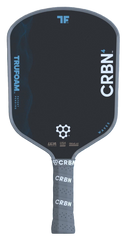Curious about pickleball and ready to jump into its lively community? You’re in the right place! This guide will help you find and register for a pickleball league, covering everything from membership requirements to fees.
You’ll also get the scoop on what to expect regarding league formats, rules, and competitive levels. Plus, you’ll pick up some essential tips for boosting your skills and keeping your sportsmanship in check.
Whether you’re a beginner or looking to up your game, there’s definitely something here for you!
What is Pickleball?
Pickleball is an engaging racquet sport that blends elements of tennis, badminton, and ping-pong, making it fun and accessible for players of all ages and skill levels. You typically play it on a designated court with a net, paddles, and a plastic ball with holes, which creates a unique mix of competition and social play.
Whether you're just starting to learn the rules or you're an advanced player scouting for competitive leagues, pickleball has a vibrant community waiting for you through local clubs, recreational play, and tournaments.
This sport has its roots back in the mid-1960s when it was invented for family fun, and it’s evolved into a beloved pastime for many. The standard court size is 20x44 feet, perfect for both singles and doubles matches. You'll be using paddles made from various materials, which help improve your grip and control over that lightweight, perforated ball.
What’s great about pickleball is that it appeals to both young athletes and older adults. This versatile game boosts agility, coordination, and cardiovascular fitness.
Plus, beyond the fitness perks, the welcoming atmosphere encourages social interaction, making it not just a game, but a fantastic way to connect, compete, and build friendships in a community-oriented setting.
How to Join a Pickleball League
Joining a pickleball league can be a fun way for you to sharpen your skills, meet other players, and dive into some organized competition, no matter if you're just starting out or have been playing for years.
To find a league that suits you, you'll want to explore the options available in your area, register properly, and keep an eye on the membership benefits and fees that come with joining.
Luckily, these leagues cater to all skill levels and age groups, so you’re sure to find your spot within the pickleball community.
Finding and Registering for a League
Finding and signing up for a pickleball league near you can be a breeze, especially with all the online resources at your fingertips. Many local clubs and pickleball associations have websites loaded with info about league schedules, registration deadlines, and upcoming events, catering to players of all skill levels. Whether you’re just starting out or you’ve been playing for a while, there’s probably a league that suits your needs and expectations.
To make your search even easier, dive into dedicated online forums and community groups—they’re often goldmines for essential insights and real experiences from other players. Monitor newsletters from these organizations, too. They regularly share updates on practice schedules and types of competitions, which can help you make informed decisions.
When you’re checking out different clubs, pay attention to their league structure—whether it’s recreational or competitive—since that can really shape your experience. Plus, chatting with fellow enthusiasts can give you a better perspective on the opportunities out there, ensuring you find a league that aligns perfectly with your playing style and growth goals.
Membership Requirements and Fees
Understanding the membership requirements and fees for joining a pickleball league is key to making your registration process smooth. Most clubs will ask for a nominal membership fee, which gives you access to facilities, practice sessions, and organized matches, really boosting your pickleball experience. Keep in mind that some leagues might have specific criteria based on skill levels or age groups, so it’s a good idea to clarify those details before you dive in.
You’ll find that each membership type is a bit different, with options usually ranging from individual to family plans, as well as seasonal or annual memberships. These often cover not just court access but also perks like equipment rentals, discounts for tournaments, and special training clinics.
Plus, these memberships encourage regular participation and create a sense of community, allowing you and other players of all ages and backgrounds to connect, share tips, and improve your skills together. This collaborative environment is essential for your development as a player and contributes to a supportive atmosphere that can really enhance your overall pickleball experience.
What to Expect in a Pickleball League
When you join a pickleball league, you can look forward to a structured environment that really encourages you to participate, compete, and develop your skills. Each league will have its own format, so whether you're in it for some laid-back fun or ready to tackle competitive tournaments, there's something for everyone, no matter your skill level.
Getting a handle on what to expect in terms of matches, practice schedules, and the rules of play will definitely make your experience more enjoyable.
League Format and Rules
League formats in pickleball can really mix things up, offering a range of competition styles like singles, doubles, and mixed doubles. It’s super important for you to understand the rules of play to keep matches fair and enjoyable. This includes knowing the scoring techniques and game formats that determine how games are played and won. Each league might have its own twists on the general rules, so getting familiar with those specifics will make your experience much smoother.
For example, in a typical doubles match, each team takes turns serving, and scoring usually follows a rally point format. This means you can win points no matter who served, pushing you and your partner to strategize not just around your strengths, but also to exploit your opponents’ weaknesses.
In mixed doubles, you’ll need to adapt your gameplay to accommodate different skills and styles between genders, which can lead to some fascinating dynamics. The scoring system can also impact how you approach the game; for instance, in a first-to-11 point win, you might lean towards aggressive strategies, while a first-to-21 point format could have you playing more defensively as you aim to outlast your opponents.
Understanding these formats not only boosts your competitive edge but also helps you enhance teamwork and communication on the court.
Types of Competitions and Levels
Pickleball competitions come in all shapes and sizes, ready to welcome everyone from beginners to advanced players. You can dive into recreational leagues, competitive leagues, or even local tournaments, each offering its own set of challenges and chances to grow. Getting involved in these competitions not only hones your skills but also helps you connect with other players who share your passion for the sport.
In terms of choosing the right type of competition, it often depends on your current skill level and what you want to achieve. Recreational leagues are usually more laid-back and all about having fun, making them perfect for newcomers. If you're looking for a serious challenge, competitive leagues will push you to polish your techniques and strategies, often featuring tournament formats that keep the excitement going for longer.
Local tournaments can be especially valuable, as they introduce ranking systems that help you track your progress while meeting other players. By participating in various events, you not only sharpen your game but also open up networking opportunities and gain insights into different playing styles.
Tips for Success in Pickleball Leagues
To really succeed in pickleball leagues, you should focus on building both your technical skills and your strategic understanding of the game. This means getting involved in drills, attending clinics, and fine-tuning game strategies that can give you an edge during matches.
Plus, creating positive team dynamics and practicing good sportsmanship will seriously boost your league experience and help you grow as a player.
Improving Your Skills and Strategy
Improving your skills in pickleball takes dedicated practice, strategic training, and a willingness to learn from both your matches and your coaches. Regular drills focused on specific techniques—like footwork, shot selection, and serving—can really help you elevate your game. Understanding the nuances of game strategy, such as positioning and shot placement, is crucial for competing effectively.
Mixing up your training methods keeps things interesting and ensures you develop well-rounded skills. For example, drills that boost your reaction time and hand-eye coordination can be super beneficial, while partner drills give you that critical real-time feedback. Establishing a consistent practice schedule allows you to track your progress and stay motivated.
Don’t forget to analyze your post-match performances; they can provide invaluable insights that help you refine your strategies and techniques. By integrating feedback on your decision-making and execution, you can continuously adapt and keep your training in line with the ever-changing demands of the game.
Maintaining Proper Etiquette and Sportsmanship
Keeping proper etiquette and sportsmanship in mind is key to creating a positive and enjoyable atmosphere in pickleball leagues. Whether you're playing casually or in competitive matches, being respectful to your opponents, following the rules, and showing good sportsmanship can really enhance the experience for everyone involved. This kind of approach builds community and makes the game way more fun.
For example, when you recognize a close call honestly, it strengthens trust among players. A simple compliment on your opponent's great shot can uplift the entire match and reflect the integrity that makes the sport special.
Even little gestures, like shaking hands before and after the game, go a long way in promoting goodwill and friendliness. By sticking to these principles, you help create a welcoming atmosphere that encourages newcomers to join in and thrive.
In the end, embracing respect, honesty, and integrity not only makes your individual games better but also boosts the overall culture of pickleball, making it more inviting for everyone who loves the sport.
Frequently Asked Questions
What is a pickleball league?
A pickleball league is a group of players who come together to play organized matches against each other. It provides a fun and competitive environment for players of all skill levels to improve their game and meet new people.
How do I join a pickleball league?
To join a pickleball league, you can usually sign up through your local community center, recreation department, or a private club. Some leagues also have online registration options. It's important to check the league's specific requirements and registration deadlines.
What are the benefits of joining a pickleball league?
Joining a pickleball league offers many benefits, including improving your skills, meeting new people, and staying physically active. Leagues also provide a structured and organized format for playing matches, which can help enhance your overall game.
What can I expect during a pickleball league match?
During a pickleball league match, you can expect to play against other players or teams in a competitive setting. Matches typically follow a set of rules and scoring system and can vary in length depending on the league. It's also common for leagues to have designated referees or scorekeepers to ensure fair play.
Do I need to have previous experience to join a pickleball league?
No, you do not need previous experience to join a pickleball league. Leagues welcome players of all skill levels, from beginners to advanced players. It's a great way to learn the game and improve your skills while playing against others.
Are there any age restrictions for joining a pickleball league?
Age restrictions may vary depending on the league, but most leagues welcome players of all ages. Some may have separate divisions for different age groups, while others may have mixed age divisions. It's best to check with the league's requirements before signing up.







